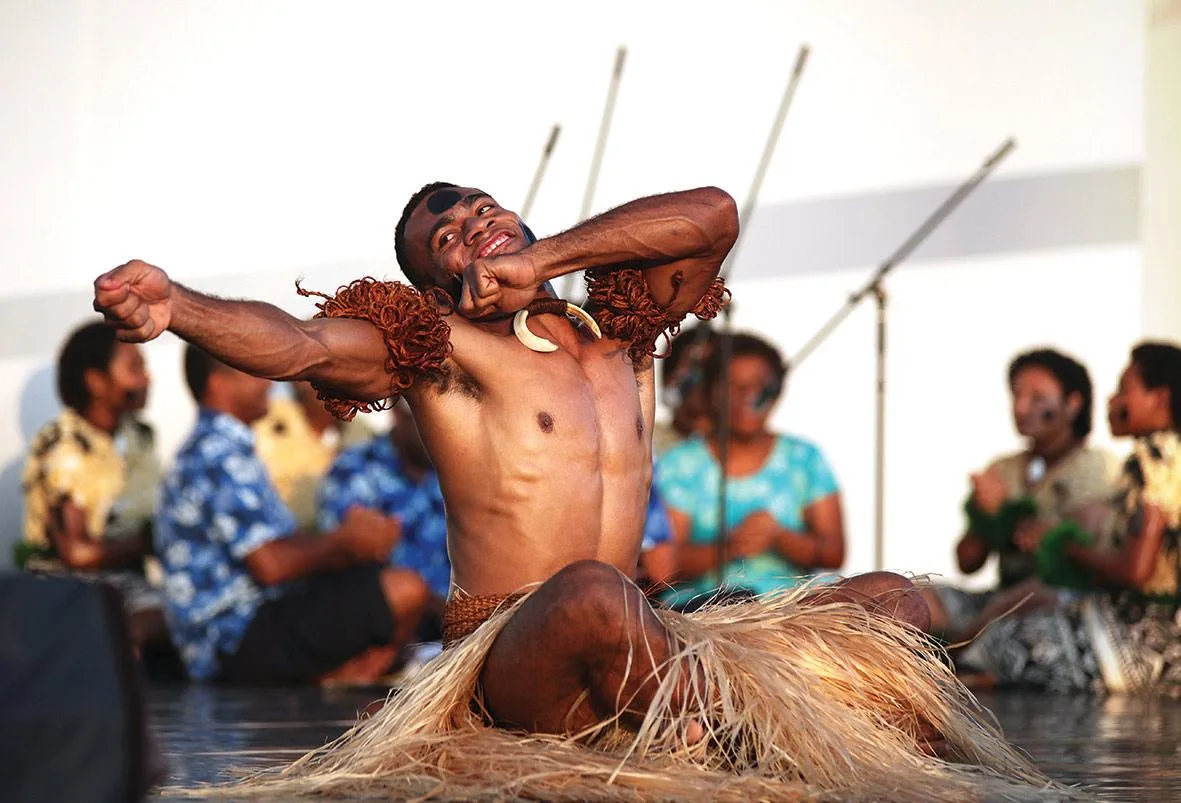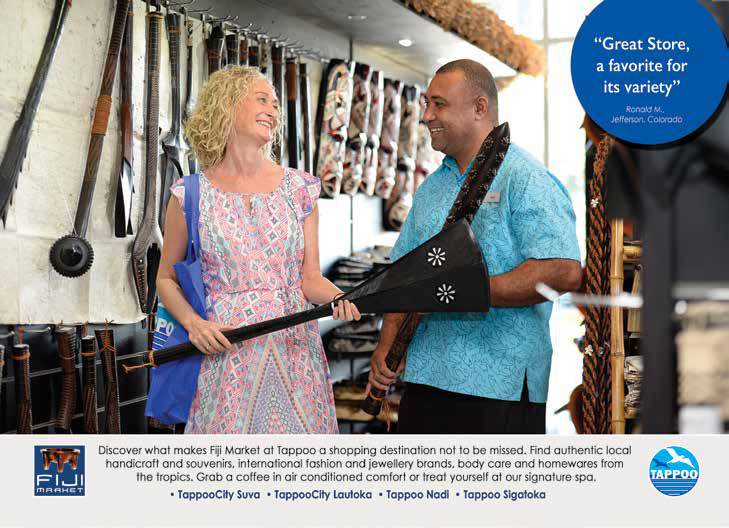People in Fiji
Today, Fiji is a melting pot of ethnicities. Melanesians, Polynesians races and indigenous Fijians make up half the nation’s population with the remainder Europeans, Chinese and Indians. Christianity is Fiji’s dominant religion. Other faiths include Hinduism and Islam, as well as native Fijian beliefs systems.
Languages in Fiji
English is the official language, while Bauman – one of the many Fijian regional dialects – is the national indigenous language. Fiji, Hindi, Cantonese, Chinese and other Pacific languages are spoken while Fiji’s traditional links to neighboring Rotuma, Tonga, and Samoa influence the dialects of cultural practices.
This exposure to many languages has resulted in most Fijians being bilingual. Fiji English, a slang with characteristics of Fijian, English, and Hindi, is used in casual settings.
Design & Architecture
Crafts practiced by men and women are kept separate. Women’s crafts include pottery, cloth making and weaving mats from pandanus leaves and coconut tree parts, while men are carving and build canoes. Fijian folk music contains heavy church influences and is often accompanied by ethnic percussion beats.
Simplicity and practicality were the main principles of Old Fijian village architecture, as you can see in the Navala Village. Each village had a meeting house and a spirit house (Bure Kalou) on an elevated base, used to differentiate social hierarchy.
Now, contemporary aspects of architecture have influenced the business, industrial and domestic sectors, and village structures have received updates such as modern materials.
Cultural & Legal Restrictions
Vibrant indigenous Fijian culture forms a big part of day-to-day living for most, but society has evolved to make way for other traditions. Diverse races and intersection of traditions in Fiji create a unique, communal culture. Fijian society attributes great significance to the family unit, the village and the land (vanua). Villages, clans, and tribes are preceded over by chiefs, who are descendants of former chiefs.
Indigenous Fijian ceremonies adhere to strict, elaborate etiquette. This is both a mark of respect to communal groups and a display of strengthening social, tribal and familial ties. Special objects used include the sacred tabua or whales tooth, tapa cloth, woven mats and Kava (or, locally, yagona) – Fiji’s national drink. Different regions also have their own practices that are passed on between generations. For instance, the Sawau tribe of Bega are well-known for being able to walk on hot stone coals, unscathed. Strict preparation rituals are required.
Along with many of its Pacific Island counterparts, Fiji is a society with strong Christian morals and practices. You are advised to dress modestly and appropriate, leaving beachwear only for the beach. Shoulders and knees of both genders must also be covered – by sulcus or sarongs, if necessary – especially when you visit churches. Hats should be removed when you visit villages and homes.
Fiji is a leader in eco-tourism, determined to preserved its pristine natural landscape. The Ministry of Agriculture, Fisheries and Forests strictly regulates imports that may jeopardize the country’s plants and animals.





